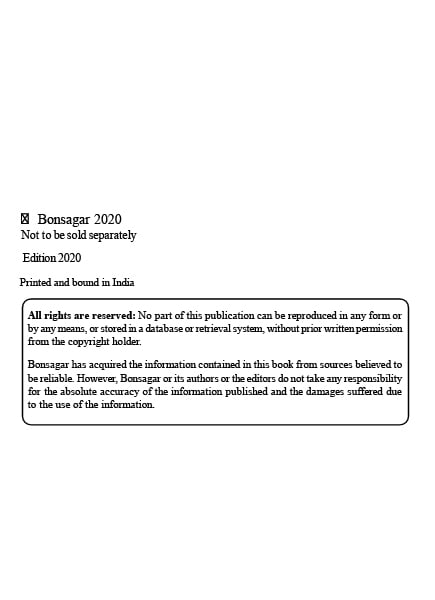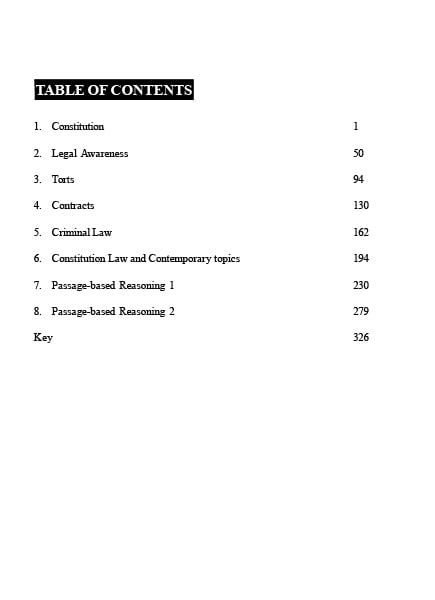The Role of Mock Tests in CAT Preparation
The Common Admission Test (CAT) is one of the most competitive and sought-after exams in India for admission to prestigious management institutes like the Indian Institutes of Management (IIMs) and other renowned B-schools. CAT evaluates candidates on various parameters, including quantitative ability, verbal ability, data interpretation, and logical reasoning. To excel in this high-stakes examination, candidates need to be well-prepared, and one crucial aspect of their preparation is taking mock tests. Mock tests play a pivotal role in CAT preparation, helping candidates gauge their progress, identify strengths and weaknesses, and develop effective strategies for the actual exam. In this article, we will delve into the significance of mock tests and how they contribute to CAT aspirants’ success.
The CAT Exam: An Overview
Before we delve into the importance of mock tests, it’s essential to understand the CAT exam’s structure and its significance in the Indian management education landscape.
The CAT exam consists of three sections:
1. Quantitative Ability (QA)
2. Verbal Ability and Reading Comprehension (VARC)
3. Data Interpretation and Logical Reasoning (DILR)
Each section is time-bound, with a duration of 40 minutes, and candidates are not allowed to switch between sections during the test. CAT employs a computer-based test format where candidates answer multiple-choice questions (MCQs) and non-MCQs, also known as TITA (Type in the Answer) questions. The exam is designed to assess a candidate’s problem-solving skills, decision-making ability, and overall aptitude for management studies.
CAT is highly competitive, with thousands of aspirants vying for a limited number of seats in prestigious management institutes. As a result, candidates need not only a deep understanding of the subject matter but also effective time management and exam-taking strategies. This is where mock tests come into play.
The Significance of Mock Tests in CAT Preparation
Mock tests are simulated exams that mimic the CAT exam’s format, difficulty level, and time constraints. They are designed to provide candidates with a realistic exam experience and serve as a diagnostic tool for their preparation. Here are the key reasons why mock tests are indispensable in CAT preparation:
Assessment of Current Skill Level:
Mock tests help candidates gauge their current level of preparedness. By attempting a full-length mock test, aspirants can identify their strengths and weaknesses in each section. This self-assessment is essential for devising a focused study plan.
Time Management Skills:
CAT has a strict time limit for each section. Mock tests enable candidates to practice time management and develop strategies to allocate their time efficiently among different sections and questions.
Familiarization with Exam Pattern:
CAT has a unique exam pattern that may differ from other competitive exams. Mock tests familiarize candidates with this pattern, including the number and type of questions, marking scheme, and navigation through the computer-based interface.
Improvement of Speed and Accuracy:
Regularly taking mock tests enhances a candidate’s speed and accuracy in solving questions. As aspirants become more accustomed to the exam format, they learn to make quick decisions about which questions to attempt and which to skip.
Identifying Weak Areas:
Through mock tests, candidates can pinpoint their weak areas within each section. This allows for targeted preparation and focused practice on specific topics or question types that pose challenges.
Adaptive Learning:
Mock tests can be customized to focus on specific areas of weakness. For instance, if a candidate struggles with data interpretation questions, they can take more mock tests in this category to improve their skills.
Realistic Test Environment:
Mock tests create an environment similar to the actual CAT exam. This reduces anxiety and nervousness on the exam day as candidates are already familiar with the testing conditions.
Tracking Progress:
By taking mock tests at regular intervals, candidates can track their progress and see how their scores are improving over time. This boosts confidence and motivation.
Strategic Planning:
Mock tests allow candidates to experiment with different strategies, such as attempting questions in a particular order or allocating more time to their stronger sections. They can fine-tune these strategies based on their performance in mock tests.
Builds Endurance:
CAT is a grueling three-hour exam, and maintaining focus and concentration throughout is challenging. Regularly taking mock tests helps candidates build endurance and mental stamina required for the actual test.
Reduces Exam Anxiety:
One of the significant benefits of mock tests is that they help reduce exam anxiety. As candidates become more familiar with the CAT exam’s format and level of difficulty, they tend to feel more confident and less anxious on the actual exam day.
Learning from Mistakes:
Mock tests provide an opportunity for candidates to make mistakes and learn from them. After each mock test, candidates can review their answers, understand where they went wrong, and avoid making similar errors in the future.
Incorporating Mock Tests into CAT Preparation
Now that we understand the importance of mock tests, it’s essential to discuss how candidates should incorporate them into their CAT preparation strategy:
1. Create a Schedule:
Candidates should create a study schedule that includes regular mock tests. Ideally, they should take at least one mock test per week during the months leading up to the CAT exam.
2. Simulate Exam Conditions:
When taking mock tests, candidates should replicate exam conditions as closely as possible. This includes sitting in a quiet environment, using the same computer-based interface, and adhering to the time limits.
3. Analyze Results:
After each mock test, candidates should thoroughly analyze their performance. They should review which questions they got right, which ones they got wrong, and which ones they skipped. This analysis is crucial for identifying areas that need improvement.
Focus on Weak Areas:
Based on the mock test results, candidates should prioritize their preparation. They should spend more time on topics or question types where they are struggling.
5. Adaptive Learning:
Use mock tests to practice adaptive learning. If certain sections or question types consistently pose challenges, allocate more practice time to them. Many online platforms offer adaptive mock tests tailored to a candidate’s strengths and weaknesses.
6. Revision and Retesting:
Candidates should revisit the topics they have studied after taking a few mock tests. This helps in reinforcing the concepts and improving retention. After revision, they can retake mock tests to assess their progress.
7. Variety of Mock Tests:
It’s advisable to attempt a variety of mock tests from different sources. This exposes candidates to a wider range of questions and helps them adapt to different difficulty levels.
8. Evaluate Strategies:
Mock tests are an excellent platform to experiment with different exam-taking strategies. Candidates can try different approaches and see which one works best for them.
9. Time Management Practice:
Candidates should practice time management during mock tests. They can use timers to simulate exam conditions and learn to pace themselves effectively.
10. Stay Updated:
Mock tests should be based on the latest CAT exam pattern and syllabus. Ensure that the mock tests you are taking are up-to-date and relevant to the current CAT exam.
Conclusion
Mock tests are an integral part of CAT preparation and can significantly impact a candidate’s performance on the actual exam day. They serve as a mirror reflecting the strengths and weaknesses of aspirants, providing an opportunity for targeted improvement. Furthermore, mock tests help reduce anxiety, enhance time management skills, and build the endurance required to excel in the CAT exam.
Aspirants should not view mock tests as mere practice exercises but as an essential component of their CAT preparation strategy. Regular and thoughtful use of mock tests, coupled with a well-structured study plan, can significantly increase their chances of achieving a high CAT score and securing admission to their dream management institute.
In the fiercely competitive world of CAT, mock tests are the bridge between preparation and success. They are the stepping stones that lead aspirants closer to their academic and professional aspirations. Therefore, any serious CAT aspirant should embrace mock tests wholeheartedly and harness their power to shine in this challenging examination.




